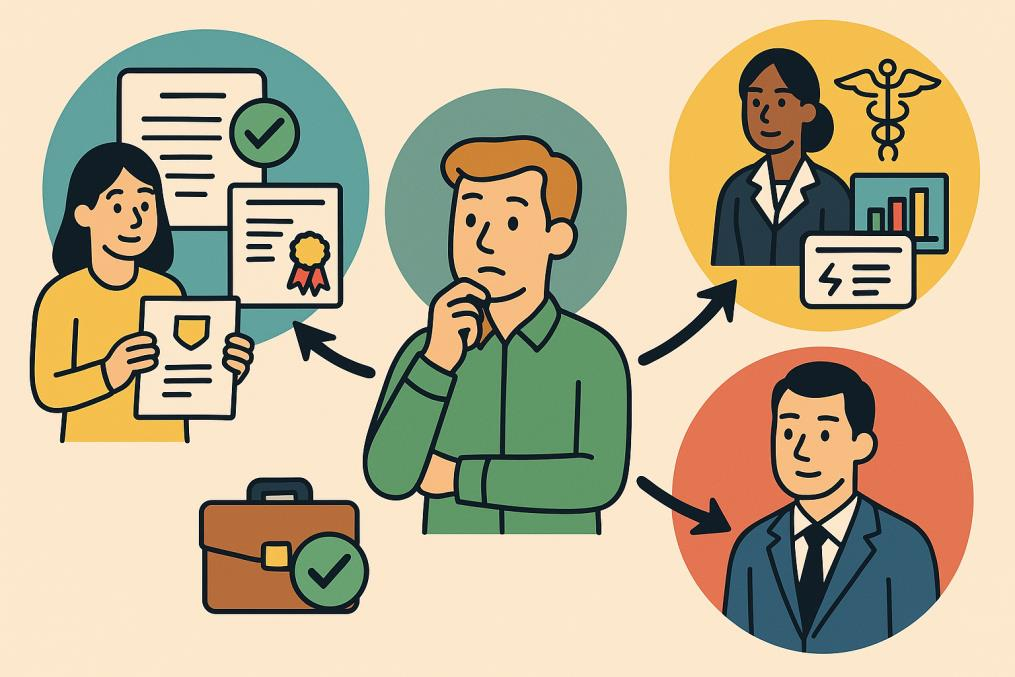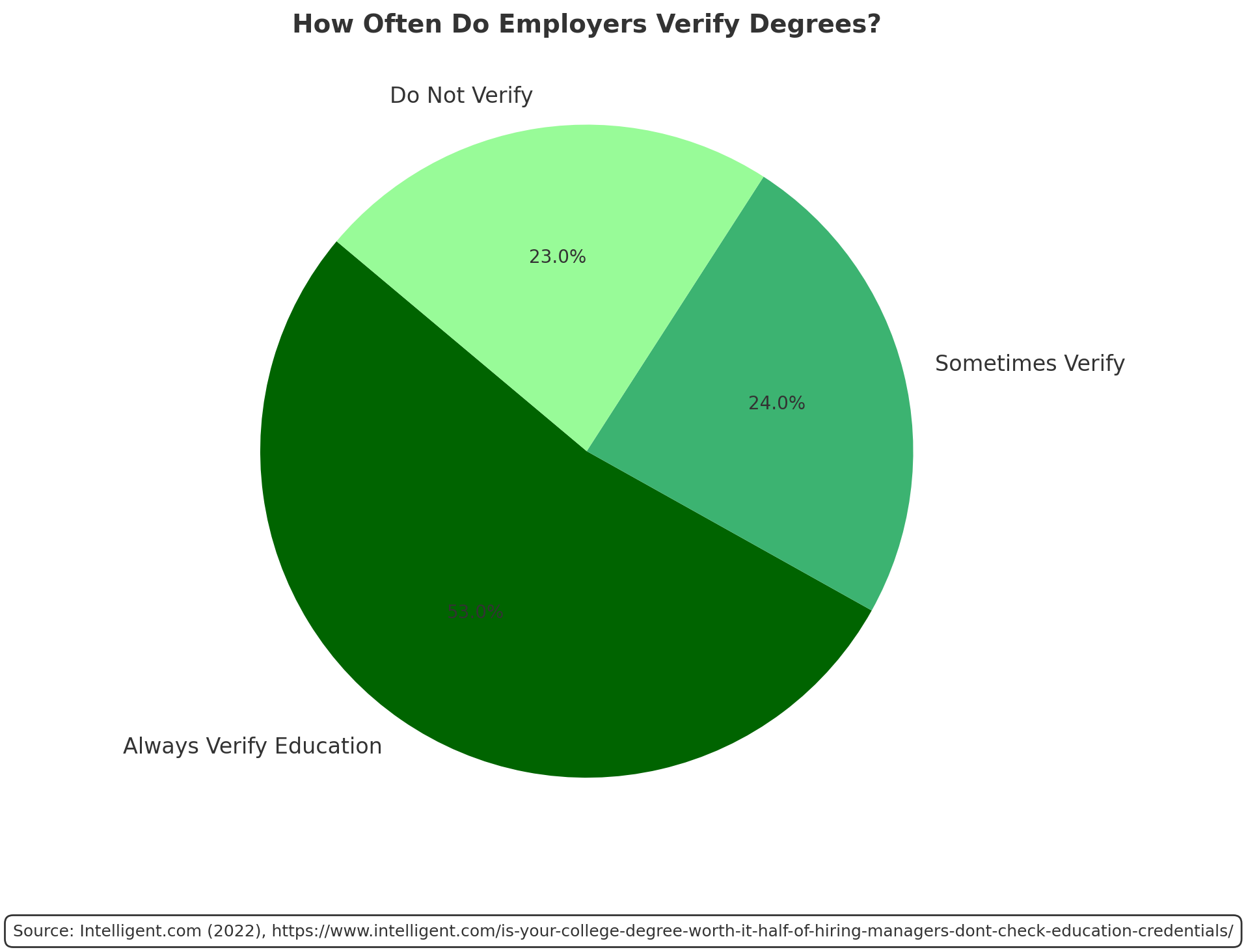If you’re applying for jobs in the U.S. with a foreign degree, you need to know how employers check your education. Some will accept your credentials as-is, others will ask for a formal evaluation. This article explains how the process works, what tools employers use, and what you should do to avoid delays or doubts about your degree.
Do U.S. Employers Recognize Foreign Degrees?

Some do, some don’t—it depends on the job, the industry, and how closely your degree lines up with U.S. standards.
Here’s what matters:
• Accreditation and equivalency: Employers often want proof that your degree is equivalent to a U.S. degree. That’s where credential evaluation services come in. They compare your coursework, institution, and grading system to U.S. norms.
• Job type: Fields like tech, business, and design are usually more flexible. Regulated fields (law, medicine, education) have stricter rules and may require U.S. certification or licensing.
• Experience: A strong work history can sometimes carry more weight than where your degree is from—especially in private sector roles.
Bottom line: A foreign degree can be valid, but you may have to prove its value through evaluation or extra documentation.
How Often Do Employers Verify Degrees?
According to a 2022 survey from , 53% of hiring managers always verify a candidate’s education, while another 24% do so occasionally. So yes, degree checks are common—especially in fields like healthcare, tech, education, and finance.

Percentage of Verification
• 53% Always Verify Education
• These employers consistently confirm a candidate’s academic background—either by contacting the institution directly or using a third-party service.
• 24% Sometimes Verify
Education checks are conducted based on specific roles, departments, or seniority levels.
• 23% Do Not Verify
These employers skip education verification altogether, though this is less common in regulated fields.
Common Verification Methods
• Direct Verification: Some employers contact schools directly to confirm that a degree was issued.
• Third-Party Background Checks: Services like and often handle education verification. If your degree is foreign, they may require a credential evaluation report—this is where Scholaro fits in.
• ÃÀ¾çÌìÌà Evaluation ÃÀ¾çÌìÌÃ: For international degrees, employers want to know if your education is equivalent to a U.S. degree. Scholaro provides evaluations that break this down in an official format that HR teams can understand and accept.
Even if not every employer checks degrees, it’s a risk to assume they won’t. Submitting a verified evaluation puts you in a stronger, more transparent position.
Can You Work in the U.S. with a Foreign Degree?
Yes—but your degree alone isn’t enough. You need a valid visa and, in many cases, a credential evaluation.
Common Work Pathways
• H-1B Visa: For jobs that require specialized knowledge. You’ll need at least a bachelor’s degree or equivalent. A credential evaluation can confirm that your foreign degree qualifies.
• OPT (Optional Practical Training): For international students on an F-1 visa. You can work for 12 months post-graduation (with a 24-month extension for STEM majors).
• EB-2/EB-3 Employment-Based Visas: For permanent work status (green card). Your degree and work experience must meet USCIS requirements—again, a credential evaluation helps prove this.
Field-Specific Requirements
Some careers (law, medicine, education) have extra steps. For example:
• Law: Foreign-trained lawyers may need to complete a U.S. law degree or pass a specific state bar.
• Medicine: Doctors must pass U.S. medical licensing exams and complete a residency program.
• Teaching: States often require a U.S.-based teaching license, which includes an evaluation of your degree and sometimes additional coursework.
How to Validate a Foreign Degree in the U.S.
If you have a foreign degree and want to work, study, or get licensed in the U.S., you'll likely need a credential evaluation. This helps employers, schools, and licensing boards understand how your education compares to U.S. standards.
Use a Trusted Evaluation Service Like Scholaro
Scholaro is a widely recognized credential evaluation service. We assess your academic records and translate them into U.S. degree equivalents. Scholaro evaluations are accepted by:
• Employers and hiring managers
• Colleges, universities, and graduate schools
• Licensing boards (check state requirements to confirm)
• Immigration services (e.g., USCIS)

How Far Back Do Education Background Checks Go?
Unlike criminal or credit checks, which often have legal limits on how far back they can go, education verifications don't have a fixed time frame. Employers can verify degrees earned decades ago, provided the educational institution still maintains the records.
Key Takeaway
There's no expiration date on your degree when it comes to verification. If you're applying for a job in the U.S. with a foreign degree, it's advisable to have your credentials evaluated by a recognized service like Scholaro to facilitate the verification process.
How Do Employers Verify Education? (Including International Degrees)
U.S. employers verify education through a mix of direct outreach and third-party services. For international degrees, credential evaluations are often required.
What Employers Verify
• Degree obtained
• Dates of attendance
• Graduation date
• Accreditation status of the institution
Tips for Candidates
• Provide Accurate Information: Ensure all details on your resume and application are correct.
• Prepare Necessary Documents: Have your transcripts, diplomas, and any required translations ready.
• Use ÃÀ¾çÌìÌà Evaluation Services: If you have a foreign degree, obtain a credential evaluation from a recognized service like Scholaro.
By following these steps, you can facilitate the verification process and present your qualifications effectively to U.S. employers.

